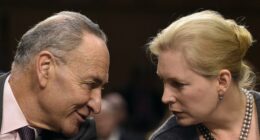
Last Updated: 9:06 p.m.
Raising the possibility of malfeasance, an independent investigation sustained allegations that Palm Coast Mayor Mike Norris violated the charter by interfering with city management and calling for the resignation of City Manager Lauren Johnston and Chief of Staff Jason DeLorenzo.
The findings go much further, drawing the portrait of a mayor at times unhinged with hostility, rudeness, foul language, misplaced humor and demeaning statements, revealing “a pattern of inappropriate conduct and unprofessional behavior” that undermines Palm Coast’s government “and creates a hostile work environment for city employees.”
The investigation’s completion–council members were reading it this evening–coincides with the council’s interviews with two city manager candidates on Thursday. “My first thought is that it makes me sad for our city,” Council member Theresa Pontieri said in a text.
“I am appalled and disappointed by the findings of the independent investigation into Mayor Mike Norris,” Council member Ty Miller said. “The report outlines repeated violations of the City Charter, a pattern of inappropriate and profane behavior, and an overall disregard for the responsibilities of his office.”
While Norris was found to have a special animus for DeLorenzo, the investigation confirms that the mayor had targeted several others for resignations or firings, among them Human Resources Director Renina Fuller, Planning Director Ray Tyner, Communications Director Brittany Kershaw. It reported that he didn’t think the Communications Department necessary and that he even raised questions about the Utility Department’s usefulness.
The investigation, called for by a majority of the City Council and conducted by Tallahassee attorney Adam Brandon of the Lawson Huck Gonzalez law firm, recommends that the council refer the matter to the Florida Commission on Ethics, that it formally censures Norris for “conduct unbecoming of a public ofϐicial, including violations of the City Charter,” that it strengthens its own charter’s enforcement mechanisms, and that further “independent investigation and corrective action may be warranted to address these issues and restore integrity and morale.”
Attention will focus especially on the attorney’s wording about malfeasance, the one word which, in this context, grazes at the possibility of Norris’s removal by the governor–the only way that an elected official may be removed. The city charter forbids elected officials’ “interference” in the administrative duties of any employees under the supervision of the city manager or the city attorney. But charter does not define the meaning of “interference.” But state law does.
“When applied to Palm Coast’s elected officials, such interference could constitute malfeasance if it violates the Charter,” the investigation states, “such as an individual Council Member attempting to direct or remove staff under the exclusive authority of the City Manager. The Charter defines ‘malfeasance’ in reference to Florida Statutes.” Under state law, such violations by elected officials constitute “malfeasance, misfeasance, or neglect of duty in office.”
Malfeasance, Brandon wrote, “can generally lead to penalties including removal from office, suspension, public censure, salary forfeiture, civil fines, and restitution.” Some of the penalties require censure or referral to the Ethics Commission.
Much of the investigation documents incidents and allegations previously reported, but without investigative details or the direct testimonies of those involved, Norris included.
Central to the incidents was the one that triggered the request by Council member Charles Gambaro for an investigation: the claim that he had summoned Johnston and DeLorenzo only to have them resign. (Pontieri and Ty Miller joined Gambaro in requesting the investigation. Norris did not stand in the way.)
DeLorenzo’s statement, included in the investigation, spells out what took place: “On Sunday, March 9, 2025, Mayor Norris sent a group text to me and the Acting City Manager, Lauren Johnston, directing us to attend a 9 a.m. meeting the following day. When I arrived at the meeting on Monday, March 10, shortly after Lauren, the Mayor was already present in the council office. He had the City Attorney, Marcus Duffy, on the phone and stated this would be a ‘one-way conversation.’ I understood this to mean we would not have an opportunity to respond. Mayor Norris said he had lost confidence in our ability to lead the organization and asked both of us to resign immediately. He did not offer any further explanation, and after making his request, he excused us from the room.”
DeLorenzo was stunned. No one had spoken to him that way in his professional life. Norris had ignored him the first two weeks he was in office, even though DeLorenzo’s office is a few paces from Norris’s. He didn’t want DeLorenzo involved in a major economic development announcement in late March. “You know I have spider webs, right Jason?” he had once told him, referring to spies.
Johnston corroborated the account of the March 9 meeting, and by March 20, was refusing to meet with her, even though such regular meetings are essential for elected officials to understand issues ahead and meeting agendas. (“If you don’t make me look good, I’m going to fire your ass,” he’d once told the acting city manager just before she went on the air on a local radio show. On another occasion, he told her of her clothing: “I don’t like pantsuits, you look like Hillary Clinton.”
Jeff Douglas, the CEO of Douglas Properties, a major development firm in town and another Norris bête noire, recalled to the investigator that in January 2025, Norris told him: “This is my city now and that fucking Jason DeLorenzo, I’m going to fire his fucking ass the first chance I get. And after that, I am going to fire Lauren.” Douglas is the only non-employee or city official the investigator interviewed.
In the attorney’s summary of his interview with Norris, Norris is quoted as saying: “I want to be clear: I did not demand their resignations. City Attorney Marcus Duffy was on the phone during the conversation and may have assumed I was demanding they resign. That was not my intent. I never instructed Lauren to fire Jason, and I did not tell Marcus Duffy that he needed to resign either, though it’s possible he interpreted my remarks that way.”
But then Norris himself read his own notes or script he had at the meeting, which to the investigator left little doubt about Norris’s intent. The script is reproduced here as written by Norris: “I have lost confidence in both of you as senior staff employees of the city and I as a singular member of the council I request your immediate resignation and I will be conveyed my sentiments to the rest of the council during the next workshop on Tuesday. The good news is there’s other Senior members of the staff as well that I would also request their resignation, but we are in the middle of the hiring process for a new CM and they are for the most part needed personal to keep the city functioning.”
After reading the script, Norris added: “I requested their resignations, but I did not demand them. I later decided not to bring up the issue at that Tuesday’s meeting, because I was prepared to move on.”
Miller, the council member who took his seat at the same time as Norris last fall, in a text to FlaglerLive this evening called the mayor’s conduct “willful and purposeful when he’s been reminded so many times that these types of actions at a minimum [are] inappropriate and unprofessional (to the point that any employee would be terminated with similar acts) but at times malicious, intentionally dishonest” and in violation of the city charter.
He later elaborated in a statement. “As a combat veteran,” Miller said, “I was trained to lead by example and to conduct myself in a manner above reproach. Respect isn’t demanded—it’s earned through integrity, accountability, and how you treat others. Mayor Norris’s actions fail that standard.” (Norris is also a veteran.)
Miller doesn’t accept Norris’s implying that he was merely misinterpreted. “These were not misunderstandings; they were deliberate choices,” Miller said. “What’s worse is the pattern: deny, admit, justify, then blame others. That is not leadership-—it’s evasion. If any city employee acted this way, they’d be subject to serious discipline. No one is above the law—not even the Mayor.”
Norris spent much of his interview with the attorney outlining grievances he’s made public in segments over the last few months, and especially at the recent State of the City, where his address was eclipsed by his own bleakness before the city administration al but obliterated it from its own account of the event.
“In my view,” Norris went on with the attorney, “staff have allowed developers to operate unchecked. These developers are not providing enough value to the community and are receiving little pushback from city leadership. Staff are also interacting with Council Members in silos, which undermines good governance. I have a candid and dry sense of humor, and I realize that it may not land the same way with everyone. I was raised in a different generation. I’m a Gen-X’er, and I don’t like to tiptoe around issues. Millennials may not appreciate that style, but it’s how I lead.” Norris did not respond to a text before this article initially published, and his phone went to an odd, unrecognizable voice mail.
The investigator’s summary findings aside, the 13 interviews detail the inner workings and dysfunction of the city administration more exhaustively than any public revelations to date, possibly in the city’s entire history. The summaries here refer mostly to the Johnston-DeLorenzo meeting and matters radiating from it.
But many of the interviews contain notable revelations–including Norris’s seemingly justified concerns about trust: “I have observed city staff communicating with individual Council Members in silos,” he is quoted as saying in the investigative summary of his interview. “For example, how would Council Member Charles Gambaro know about a private conversation I had with the City Manager? That conversation was inappropriately shared, which should not happen under a government that is supposed to operate transparently. If Council Members are privy to my private conversations with the City Manager or City Attorney, then I should be privy to theirs.”
He does not elaborate: the city manager is not strictly barred from sharing some conversations, though managers or any other administrative officials are strictly barred from sharing any information that could constitute polling, or channeling information from one council member to another, outside of a public meeting. That would be a violation of the sunshine law. But it requires evidence.
The investigation also reveals that former Palm Coast City Council member Ed Danko has filed an ethics complaint against Norris. Danko declined to be interviewed by the investigator but provided a copy of the complaint, the substance of which he summed up in his introduction. Danko filed it, he wrote, “in response to a series of unfounded, defamatory, and potentially unlawful actions taken by [Norris] both prior to and following his assumption of office. These actions constitute an abuse of power, a violation of state law and City Charter provisions, and an attempt to erode public trust in city governance.”
![]()
The Norris Invbestigation:
Palm Coast Investigation – April 18, 2025 (1)









